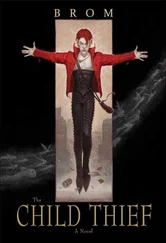Arturo lived with his uncle, who made him work in the pigsties because Arturo’s father had killed a man and fled the village. Arturo liked soccer, and would come to the field to play with us.
But his uncle would come looking for him, spying on him first through the small jagged wall bristling with chunks of glass bottles. And then he would creep up on us, and lunge at Arturo through the doorless entrance.
Once he had him he began shaking and kicking him, giving himself over fully to the wrath his nephew kindled in him.
Bloodied and bawling, Arturo would look over at us. His uncle would throw him to the ground, hold him down with a foot, then remove his belt and start whipping, making him crawl out of the field on all fours. Nearly every time he came to play with us, his uncle would show up.
If one of us spotted him, he’d shout, “Run, here comes your uncle!” But Arturo never ran, he stood there hypnotized, watching him draw near.
And then the show began again, and we heard the uncle’s usual threat:
“You lazy bum, someday I’m going to kill you.”
Yet he never did. One day Arturo drowned. He was walking along the edge of the dam and slipped in and wasn’t able to get out.
Straight away, delighting in the temperature of the day, the placement of cobblestones in the street, the youthfulness of a passing woman, as if they were all topics that interested me, each time I went over to see his son, don Pedro, Juan’s father, would open the door and say he wasn’t home but meanwhile begin telling me about the adventures of the Pardaillan, with each sentence entangling me even more in an episode which, at ten in the morning, and on a Monday, I didn’t want to hear about. Gradually imprisoned by his unrelenting voice, which ignored my excuses to leave and my fidgeting, he made me see the houses as squashed, the hills as flattened, the passersby as misshapen, while my face grew long from boredom.
My sole desire was to flee, while in his sleep-deprived face the features softened, and his expression livened up in the enjoyment of an unintelligible joke. But when my drifting attention signaled that in the first pause I would try to take my leave, he circled around the same anecdote to avoid any silences, telling it over and over in different words. And, scrutinizing my eyes as if to make certain I was following his story, he would suddenly tell me about some harebrained event.
When a boy near us began banging on a post with a stick, don Pedro pretended not to hear so I wouldn’t be distracted from his tale. Without interrupting himself, he searched for the source of the noise with his eyes. Then he stopped, as if the sequence of the episodes had suddenly become scrambled and he didn’t know how to continue, holding up a raised finger that bid me wait.
And then he went on, as if he’d memorized the episode line by line, savoring each word in his mouth before uttering it, taking time to find the next one. And engaged in establishing the relationship between one of the Pardaillan and a lady, he lost himself in the description of her sensual features, but noticing that it bored me, he quickly said, “And then he pushed her away from him and with his dagger pinned a man to the door.”
He called characters in books by their first names, as if he and I knew them personally or were somehow intimate with them; and, as if sharing a secret with me, he announced, “Nevertheless, Pardaillan had conquered the princess.”
Enraptured, he seemed to speak an incomprehensible language, thanks to the saliva in which his words swam and because so many of his sentences were drowned and inaudible.
When one of his friends went by he looked at him suspiciously, as if reading an opinion in his eyes about his being with a boy. But once his distrust of the man had passed, he turned back to the Pardaillan, like a moth circling a lightbulb.
All of a sudden, saying to myself, “That’s it,” I ran off, leaving him in midsentence.
Bedridden with tonsillitis and drawn by the shouting of teenagers and kids, I peered out the window of a room facing the main square and saw Ricardo el Negro playing hide-the-belt.
Six boys, squeezed onto a bench with their hands behind their backs, passed the belt around while my brother, chosen by lot, tried to guess where it was.
When he attempted to grab at the belt from someone on the far left, someone on the far right swatted him with it.
Ricardo el Negro hit him the hardest, laughing out loud whenever he did, and even louder when he saw my brother tightly clamping his lips to hold back the tears.
He and my brother had killed a cat that used to relieve itself in the kitchen. One evening they came home and the stench wafting up from next to the stove had annoyed them.
With nauseated faces and a determined expression, they began looking around. Before long they came upon the cat, fast asleep on a chair; they grabbed him by the fur and carried him to the backyard. There, they set him on a wooden washtub, against a wall, and fired at him with a.22.
They killed him with three shots.
In those days, I hardly spoke to my brother. He went around with Ricardo el Negro and other friends who were older than me. Besides, he liked guns and pocketknives, of which I knew nothing.
One afternoon I followed him around the building site at our house because I was afraid something would happen to him.
I sensed a presence threatening him, entangling him in the snares of death.
I examined the rims of the walls to see if a brick or plank wasn’t about to fall on his head, and the floor, to make sure he wasn’t about to trip on a hole or step on a rusty nail.
I refused to part from him, as my nearness was what saved him from what might kill him.
He went from room to room, stepping on beams and leaning against loosely fitted windows, and jumped onto the mortar, his feet sinking in. With a melancholy air, he looked at me as if from a different space, as distant as people seem in a dream … I felt it was urgent to tell him to take his First Communion; he was already a teenager and still hadn’t taken it.
“To watch someone wash a glass, handling it carefully to feel its shape, and in its shape its fragility and in its fragility the glass of which it is made, and in the glass its transparency … To hold the glass between your hands, feeling its substance, its availability, its fate depending on your wish, which can be to smash it or make it shine … To treat things well, insignificant as they may seem, reveals a spirit in harmony with that which surrounds it, in a relationship of love.”
In a soft voice, Father Felipe shared a secret with me, a secret only I should hear; and although we were alone in the room, which smelled of wood and myrrh, he lowered his voice even more until he was only moving his lips, as if continuing to speak within himself.
After wanting for so long to make the trip, our mother had brought me and my brother to Temascalcingo for our First Communion. She wanted Father Felipe to be our confessor.
He had waited for me in the room, praying, while the nuns prepared me for our meeting, because before receiving anyone, he would pray. When I came in he watched me close the door and draw nearer to him, crossing the floor without feeling it beneath my feet.
Kneeling and wordless, I looked up at him, waiting for the miracle which, they’d told me, could take place. For he was a saint, and had performed miracles for the Indians and peasants in the region; he had soothed the conscience of men who had killed men, whom neither time nor imprisonment could console, the punishment being lesser than the crime.
But he only gazed at me in silence, from the height of his seventy-five years, or were they eighty-seven. And I gazed back, taking in the white beard lying against his chest, which would bleed, people said, if it were ever cut.
Читать дальше












